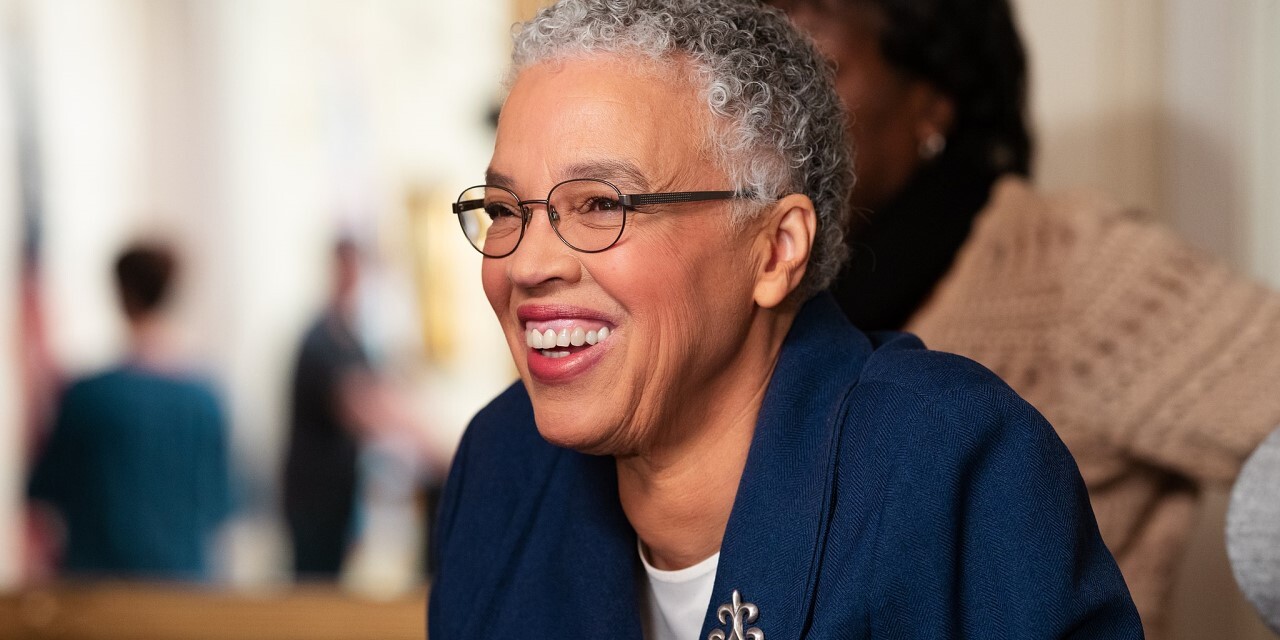With thousands of small businesses still awaiting their share of $71 million in unspent Cook County Covid relief funds, Cook County has, for now, shut down a controversial grant program, which prioritized distributing the funds to Black-, Latino- and LGBTQ-owned businesses, among other “historically excluded populations.”
That move comes as the county seeks to thwart a lawsuit alleging the grant distribution plan amounts to illegal discrimination against businesses owned by people not included on the ”historically excluded” list.
On March 7, U.S. District Judge Mary M. Rowland denied a request from a Chicago chiropractor for a preliminary injunction blocking Cook County from distributing federal Covid relief funds, intended for small businesses, under the county’s The Source Grow Grant program.

Andrew Quinio
| Pacific Legal Foundation
In her short order, Rowland said there was no longer any need for such an injunction because the program had been “rescinded.” That wording mirrored language the county had used in both court documents and an online bulletin announcing the apparent suspension of the Grow Grant program.
“With the availability of additional funding for 2023, Cook County plans to announce an expanded small business grant program,” the county said on the Grow Grant page, in an update dated Feb. 27. “As a result, Cook County has rescinded the Grow Grant effective today.”
The announcement comes about six months since the county first announced it was accepting applications for the program. In October 2022, Cook County said it planned to “award $71 million in grants to thousands of small businesses beginning in 2022.” The funds were provided from the federal government through the so-called American Rescue Plan Act.
Under the program, Cook County said it would provide $10,000 grants “paired with one-on-one business advising to historically excluded businesses – including those owned by entrepreneurs of color, women, veterans, LGBTQ+ and persons with a disability – to close racial wealth and opportunity gaps.”
That announcement quickly drew criticism and at least one lawsuit, accusing the county of engaging in racial and other forms of discrimination against white heterosexual males and others not included on their list of “historically excluded” populations.
Attorneys with the Pacific Legal Foundation filed suit against the county in Chicago federal court December on behalf of chiropractor Domenic Cusano Jr., owner of Cusano Chiropractic.
“Like many others, Dr. Cusano suffered revenue losses as a result of the COVID-19 pandemic and the attendant emergency orders,” Cusano said in his complaint, filed Dec. 21. “Yet the County will treat Dr. Cusano and Cusano Chiropractic differently on the basis of an arbitrary characteristic that is irrelevant to an individual’s moral worth: race.”
They asserted the county’s decision to racially-prioritize the distribution of grant funds amounts to a violation of Cusano’s and others’ equal protection rights under the Fourteenth Amendment to the U.S. Constitution.
The lawsuit was filed as a class action, seeking to include all others who would have been excluded from receiving grants under the program on the basis of race or other protected characteristics.
The county has not directly replied to the claims of potential discrimination.
Rather, in a Feb. 27 filing, Cook County State’s Attorney Kim Foxx informed Judge Rowland that the county had not “and will not award any race-conscious government benefits” because “the former grant has been rescinded.”
The county said this should defeat Cusano’s request for an injunction. The county has also asked the judge to dismiss the lawsuit, largely on the same basis.
Attorney Andrew Quinio, of the Pacific Legal Foundation, who represented Cusano, noted the court did not rule on the case on the merits, but only on the county’s decision to eliminate the program, seemingly to end the lawsuit.
“We had asked the judge to preliminarily enjoin the county from distributing the funds using the guidelines they identified,” Quinio said. “In response, the defendants got rid of the entire program.”
Quinio said the lawsuit remains pending, for now, as they await the judge’s decision on the motion to dismiss.
No matter the ultimate outcome on the motion to dismiss, Quinio said the lawsuit succeeded in persuading the county to abandon the program, at least for now, under the spotlight of litigation.
“Shedding light on what the county did here was of supreme importance,” Quinio said.
Further, Quinio said the Pacific Legal Foundation intends to continue to monitor the county’s planned “expansion” of the program in coming days, to ensure county officials don’t again attempt to distribute funds under similar criteria based on race or other characteristics.
“Our government should not treat us differently based on our race or skin color, no matter what those may be,” said Quinio. “These business owners, like our client, have been through so much already, with Covid and the related governmental actions.
“They should not now be reduced simply to their skin color.”
According to a report published by CBS2 Chicago, Cook County had approved only about 3,200 grants, out of more than 200,000 applications. CBS2 reported Cook County Board President Toni Preckwinkle declined to discuss what the county’s decision means the undistributed funds.
According to a quote attributed to Preckwinkle in the CBS2 report, Cook County could intend to use some of the funds to promote a local and national push for what is known as a guaranteed basic income.
